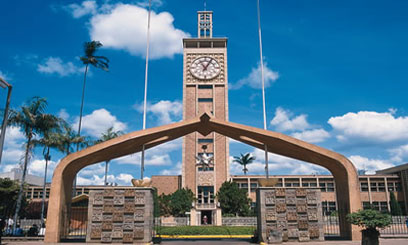NAIROBI, Kenya, Aug 16 – The Kenya Pharmacy and Poisons Board (PPB) on Tuesday found itself in murky waters when it appeared before the parliamentary committee on health following allegations that it had been clearing substandard drugs into the Kenyan market.
Although the PPB maintained that it had not cleared any such drugs, it admitted that before March 2010, only drugs categorised as risky such as antibiotics, antimalarials and injectables, were tested before being cleared.
Chief Pharmacist Kipkerich Koskei added that the Board had also recalled three registration certificates, out of the five drugs that were cited by the Efficiency Monitoring Unit (EMU) report as substandard.
The EMU report had listed Pcillin 250 mg, Fluxate Dry Powder, Malmed-fed (junior/infant), Lavina Repetabs and Kamox clav 100 mg as those that had been controversially registered.
Dr Koskei explained that his Board cleared Pcillin 250 mg and Fluxate Dry Powder after conducting tests but that the rest had not yet been cleared.
“I wish to assure you that the three other products were never imported, marketed or sold in the Kenyan market,” he maintained.
The PPB further noted that there were more than 20 pharmaceutical companies that had failed the Good Manufacturing Practice (GMP) inspection including 13 local ones. However the inspections, which have been going on since January, have only seen one local company shut down while another’s manufacturing certificate has been suspended.
He also explained that there were 1,250 manufacturers with market authorisation in Kenya which all had to be periodically inspected.
“We don’t have the mandate to close foreign manufacturers. We can only disallow their products into the country,” explained Dr Koskei.
The Poison’s Board also revealed that unscrupulous dealers were importing pharmaceutical products into the country as clothes’ cargo. Dr Koskei explained that PPB was working with the Kenya Police, the Kenya Revenue Authority (KRA) as well as the Anti Narcotics Unit to ensure that such persons were brought to book.
“We rely on KRA to inform us of the cargo that has medicines and this applies to all points of entry. We are not aware of the alleged 235 pharmaceutical import entries through Kilindini Port that were captured by the KRA,” he claimed.
During the meeting members of the Poison’s Board seemed unprepared prompting committee members Ahmed Nur (nominated MP) and Fred Outa (Nyando MP) to propose that the meeting be adjourned.
The MPs accused the Board members of being defensive and hostile towards the committee members further demanding that they apologise. The Board members were also put to task for not giving adequate responses to questions asked.
Although they were allowed to carry on with their presentation, the Board members were asked to reappear before the committee on August 23.
“We don’t want to see the CEO behaving as if he is holier than thou and we don’t want him to come here with emotions to avoid answering questions or to bulldoze them,” said Mr Outa.
“We did not come here to fight or lynch you. We came here to seek the truth so don’t get agitated; just clear the air,” added Dr Nur.
Committee Chairman Robert Monda (Nyaribari-Chache MP) threw out the Poison’s Board Legal Officer, Joseph Yano, over what he called misconduct.
“Members of your Board seem to be behaving like this is a baraza and it is disgusting to this committee. At that point I want to order Dr Yano out of this committee. We don’t handle business here by show of hands,” he quipped.
Dr Yano, who appeared to have lost his temper, however quickly accused Dr Monda of picking on him.
“You have something against me but it is fine. Let me go and have my baraza outside. Next time I’ll be in Parliament and you will not,” he retorted.
After Dr Yano had left the committee room, Dr Monda said that a letter would be drafted to House Speaker Kenneth Marende reporting his actions so that appropriate disciplinary action can be taken.
The process of drug registration started in 1982; the products are received for registration by the Board’s Secretariat before they are evaluated for quality, safety and efficacy by an external committee of experts. The PPB also explained that it had in the past used a South African agency as well as one in Zimbabwe to conduct drug suitability tests.










































